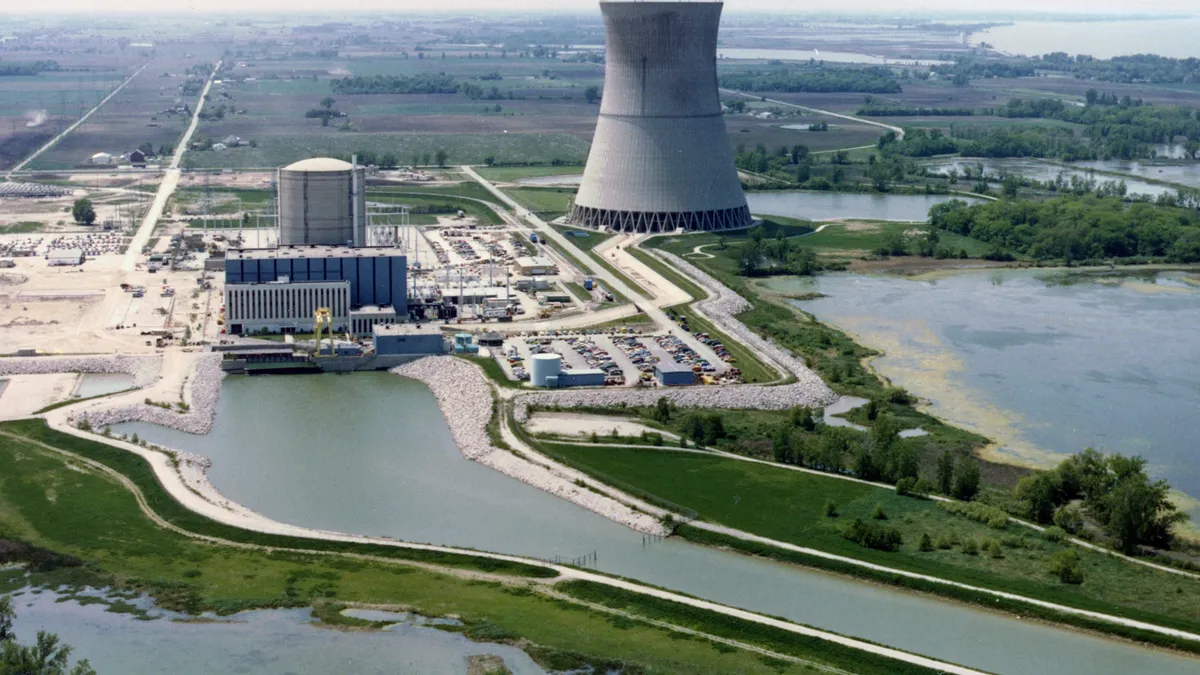Dive Brief:
-
National energy interests have the Ohio nuclear subsidy debate in their crosshairs. The American Petroleum Institute testified before the Ohio Senate Public Utilities Committee earlier this week against legislation that would create a subsidy for nuclear power in the state.
-
API’s testimony coincided with a poll the petroleum industry trade group released this week that shows that a majority of Ohio voters oppose legislation that would allow FirstEnergy to charge its customers with a special fee to increase funding to its nuclear power plants.
- API’s testimony was countered earlier in the week by testimony from Exelon in favor of the nuclear subsidies for FirstEnergy’s Davis-Besse and Perry nuclear reactors. Officials argued that similar support packages approved in New York and Illinois would work well if applied to the Ohio market.
Dive Insight:
The battle over nuclear subsidies is heating up in Ohio with Exelon, the nation’s largest nuclear plant operator, and API, a powerful oil and gas industry lobbying group, weighing in on the proposals that would set up a Zero Emission Nuclear Resource (ZEN) program (HB 178 and SB 128).
The bills would provide $300 million a year in nuclear subsidies through a charge on electric bills, but lawmakers are wary of the burden it would put on ratepayers.
In May the state’s House of Representatives suspended a vote on a bill. But the process is continuing in committee. And one lawmaker, Rep. Bill Seitz (R), is considering adding a provision that would allow ratepayers a single opportunity to opt out of payments to support the nuclear generators.
FirstEnergy opposes that option, and the company’s top nuclear executive in March said the company’s Davis-Besse and Perry nuclear plants would be forced to close if they did not receive some sort of payment beyond what is available from the wholesale market.
Exelon’s lobbying skills could add weight to FirstEnergy’s arguments. The Chicago utility company lobbied successfully in Illinois and New York for nuclear subsidies, threatening to close plants in both states if supports were not approved. And last month Exelon said that its Three Mile Island nuclear plant in Pennsylvania would shut if the state does not come to the rescue with some form of legislative bailout.
“We believe that ZEC programs like the ones adopted in New York and Illinois could work well in Ohio,” Joseph Dominguez, Exelon’s executive vice president for governmental and regulatory affairs and public policy, said in filed testimony. “As a nation, we are at a crossroads."
Gas generators strongly oppose the subsidies, which they say discriminate against their plants and defy federal jurisdiction over power markets. The Electric Power Supply Association, a gas trade group, is challenging the Illinois and New York programs in court and at the Federal Energy Regulatory Commission.













